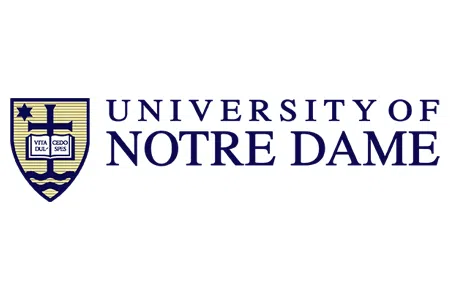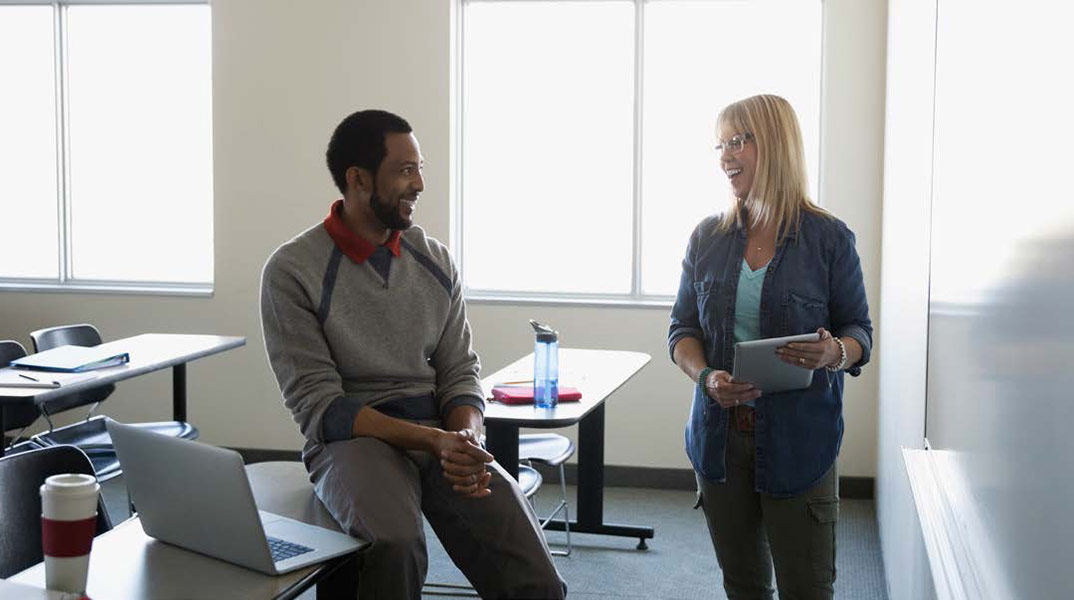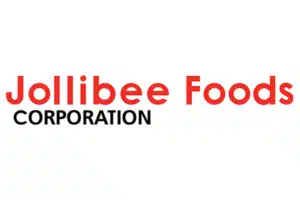- Case Study
- : Higher Education
Improving Conversations to Scale Cultural Change

| CLIENT: | The University of Notre Dame, a renowned private Catholic research university |
| LOCATION: | South Bend, IN |
| SIZE: | Over 12,000 students and 4,600 staff |
Client Profile & Challenge
If the University of Notre Dame’s performance review process had been an employee, it would have gotten a poor evaluation.
Leaders in Human Resources had implemented performance evaluation software to reduce paperwork, but few liked it or the annual review process. Employee surveys indicated that many people didn’t receive regular feedback from managers — a real problem, because employees who receive frequent, constructive feedback are more engaged at work.
Performance management remained the lowest-ranking item on employee engagement surveys — a quantitative validation of anecdotal experience.
After some research, HR leaders concluded a new review process or different software wouldn’t fix these problems. What they really needed was a culture shift surrounding the type and frequency of performance and development conversations.
“If you don’t fix the conversations, then it doesn’t matter what the process looks like,” says Tamara Freeman, the university’s Director of HR Strategy and Effectiveness.
Notre Dame started by hiring several organizations to teach various conversation skills courses, but nothing seemed to have lasting effects.
The first significant breakthrough occurred when the university engaged us.

Solution & Results
Guided by an understanding of Notre Dame’s culture, we shared our vision for a systematic approach to culture change, where everyone across campus — not just leaders — could provide feedback and coaching in more constructive day-to-day conversations.
Through our Better Conversations Every Day™ (BCE) experience, university participants learned how to use a framework of “Situation-Behavior-Impact-Intention” to share feedback on undesirable behaviors.
They also developed and practiced the core skills of:
- Listening to understand;
- Asking powerful questions;
- Challenging and supporting; and
- Establishing next steps and accountability.
In order to scale sustainable cultural change, the university understood that BCE needed to be a business initiative, rather than just another HR strategy. That’s why our initial training sessions included “program champions” — top-level executives from units across the campus, not just HR professionals. If leaders valued the experience and put their new skills into practice, their direct reports would be more likely to, too.
We then taught internal facilitators from HR and other departments how to deliver the training. This train-the-trainer strategy enabled the university to train more individual facilitators than it could have if our faculty had delivered all the sessions.
Demand for the training was strong, and the sessions were packed.
During their BCE experience, managers were seated with others who had similar levels of responsibility and authority. That made the interactions more relevant and meaningful for them. Those who completed the program began receiving post-training communications to reinforce the core skills, highlight successes with the new techniques, and offer tips.
There’s ample evidence the culture is shifting. Teams tackling problems, for instance, start by asking open-ended questions before jumping into problem-solving. Likewise, managers will coach each other on tricky conversations. Feedback shows increased accountability, enhanced engagement, and signals that more effective conversations are taking place.
The university is now rolling out Better Conversations Every Day to include individual contributors who don’t have formal management duties.
“We have good evidence that when most of your employees have gone through the program and you have someone focused on the use of the techniques, it does make a difference,” Freeman says.
KEYS TO SUCCESS
- Involving senior leaders early,
- Recruiting managers outside HR as internal trainers, and
- Reinforcing the training with follow-up communications.
BY THE NUMBERS | |
|---|---|
6% | increase over 3 years in people agreeing with the statement “My immediate manager gives me regular constructive feedback” |
4.5 | Overall participant satisfaction rating on a 1-5 scale |
Participants Say
“Of any course I’ve taken at Notre Dame, this … is the most challenging, easiest to implement immediately, and valuable for almost everyone I interact with in my life … I’ve seen positive changes and differences in myself, my friendships, and my family. ”
“After going through the training, I started to relate differently … The crew is more responsive in a positive way, including with each other … With this class, you learn to communicate better, stop micromanaging, lead with a nurturing manner, yet with a vision. And, most importantly, you will grow.”
Partner With Us
We can work with you to scale cultural change, connecting your organization’s goals to a solution that will drive impact for leaders at all levels. It begins with better conversations every day, from the front desk to the corner office.
| Related Solutions
Sign Up for Newsletters
Don’t miss a single insight! Get our latest cutting-edge, research-based leadership content sent directly to your inbox.






